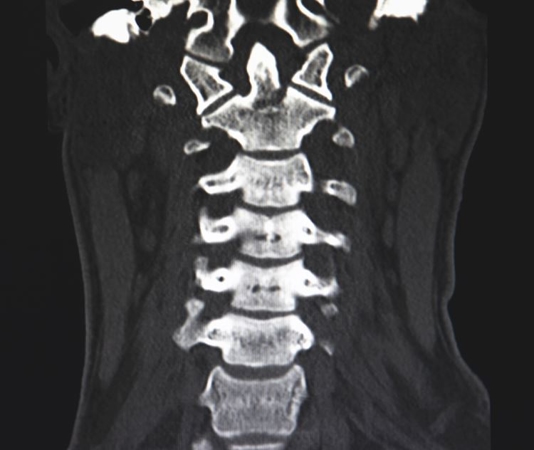Whiplash is one of the most common forms of spinal cord injury (SCI). Typically caused by rear-end vehicle accidents, the injury is characterized by trauma to the cervical spine (the region of the spinal cord located in the neck) following sudden acceleration then deceleration of the head. Although whiplash is usually mild, many people who sustain this type of injury experience adverse symptoms, such as headache and neck pain, that can persist for more than six months after the injury.
Less is known about the potential psychiatric side effects of whiplash, but neuroscientists suspect that chronic pain following the injury may cause anxiety, depression, post-traumatic stress disorder (PTSD), and sleep disturbances—all of which can interfere with the recovery process. A group of researchers addressed this knowledge gap by reviewing several high-quality scientific studies on psychiatric symptoms following whiplash. They found that:
- About 1 in 3 people experienced depressive symptoms in the first year after whiplash.
- PTSD symptoms were common but less so than depression, affecting an estimated 22.3 % of people in the first three months after injury. These symptoms decreased slightly over time, falling to 15.8% at six months and 14.6 to 17.1% at one year.
- None of the studies eligible for inclusion in the review addressed anxiety or sleep disturbances.
These findings suggest that whiplash injury is associated with relatively high rates of adverse psychiatric outcomes such as depression and PTSD. Critically, these symptoms appear to persist for up to a year after injury, indicating that people with whiplash may require long-term psychological support and treatment. Further research is needed to determine the relationship between whiplash and other potentially debilitating psychiatric disorders, such as anxiety.
Muhsen Al-Khazali H, Ashina H, Iljazi A, et al. Psychiatric sequelae following whiplash injury: A systematic review. Frontiers in Psychiatry. (April 2022).

